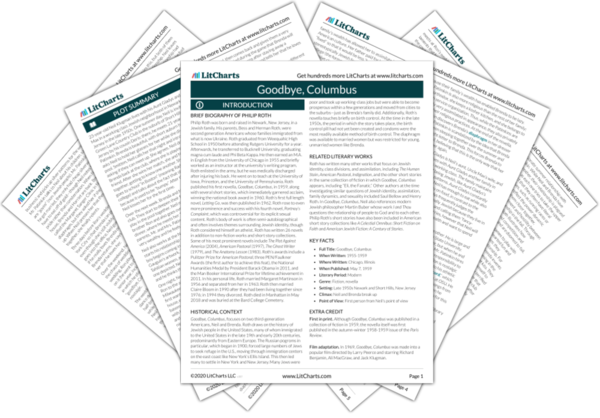Neil is wondering whether he could love anyone else in the same way, but he doesn’t answer this question, even though he is narrating from a future time. In this way, Roth leaves open the question of whether Neil is looking back on this story only with nostalgia, or whether Neil is appreciating the progress he has made in the interim. Additionally, the fact that he is literally looking at his face in the glass as he comes to these realizations makes literal the fact that he is finally moving past delusions and taking a hard look at what he really wants and who he really is. He understands that his true desire is to end his relationship with Brenda. In then returning to work on the Jewish New Year, Roth concludes Neil’s story with a symbolic return to his heritage and his socioeconomic status by turning away from Brenda’s wealth.
